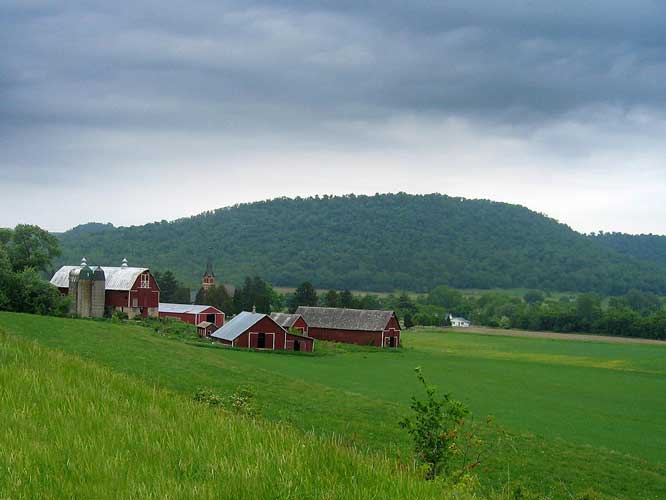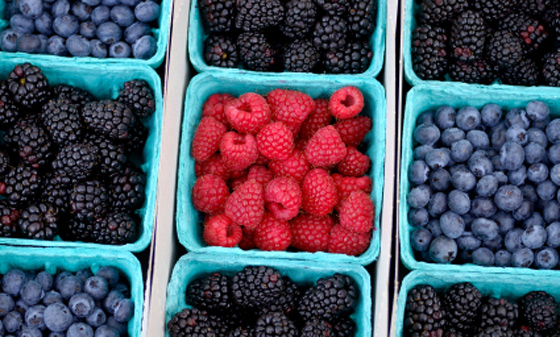The Blogging Farmer
Alex Tiller’s Blog on Agriculture and Farming
Farmland Valuations
I've been talking about farmland bubbles and whether the current rise in farm and ranchland valuations (almost a 60% increase over the last ten years) represents a speculative bubble or a genuine increase in value. "Bubbles" are periods of irrational growth in asset prices, where investors and speculators bid up the price of economically productive assets beyond what the returns on those assets would justify.
Here's the thing. One man's bubble is another man's intelligent investment. Some bankers think that we're in a bubble because land values have increased at a rate higher than the rate of appreciation of other types of assets; other bankers think the valuations are rational because they are supported by the incomes that can be earned from the farm properties. On balance, I think the more optimistic bankers are correct. We aren't seeing the typical signs of asset overvaluation that are normal for bubbles—exaggerated debt levels, marginal deals by nonfarm players, prices being paid at absurd multiples of expected income.
But in a very real sense, this is missing the trees for the forest. Farmers don't farm a market, they farm a particular piece of land. Investors in equity index funds might be buying into the success or failure of an entire sector or the market as a whole; farm investors are buying into the success or failure of a discrete farm or ranch operation. If you buy a farm for $10 million, and derive a net income of $1 million a year from that farm, then your farm is profitable and successful—even if land prices change and your farm's paper valuation drops to $5 million in the first year after you bought it.
To some types of investors, that scenario represents an enormous loss: the investor paid $10 million for something that now could only sell for $5 million. Farmers, however, do not buy farms in order to flip them at a profit; they buy farms in order to use the land, to grow and sell crops. A crash in the land value might make the farm illiquid, it might reduce the farmer's ability to take out a loan—but it doesn't make the farm unprofitable. A farm that produces a return of 10% annually on an initial investment is a great farm—never mind what the current asset price is.
We have a tendency to fall prey to the idea that prices have some absolute meaning—that something with a price tag of $5 million is worth $5 million, objectively and forever. But prices in a market economy are not objective values, they are simply a consolidation of a large number of opinions. Your farm is worth $X because the people who might be interested in buying or selling it today or in the near future think "it would bring" or they could get $X. That opinion might be very important, if you're trying to sell the land. Especially if you are trying to sell it fast.
But if you aren't trying to sell the land, or get someone to loan you money against the value of the land, then those opinions are completely irrelevant. Does it matter what neighboring farmers think of your tillage practices, or of how you lay out your orchard, or what color you paint your barn? Nope. All that matters is your soil quality, the yield compared to expectation, and whether you like the color. In the case of land valuation, what matters is whether you can make a profit from farming the property, and whether that income is sufficient to pay off any debt you incurred in buying it.
If a farm is viable and makes money, then that farm was a good investment to the farmer regardless of what the outside world thinks of it. Land values may rise and land values may fall, but the smart farmer will understand that what matters is whether or not the farm can operate and make money going forward. If it can, then the asset was appropriately priced; if it can't, then you paid too much. Farmers are in a better position than investors to understand this because farmers are in it for the long haul, not for a quick buck on a turnover or land flip. You don't need to worry about whether land values are overinflated or not; all you need to worry about is whether the purchase you may or not be making will make sense for your farming operations.
Previous writing on this topic in 2010:
(Original December 30, 2010 post at http://blog.alextiller.com/)
***
‘Let Food Be Thy Medicine...’
It's more than just a farm or a garden—it’s a pharmacy.
In this day and age when many people in the U.S.A. have their shorts in a knot over the issue of health care—particularly the question of whether or not it should be a human right or a for-profit commodity (which is a whole other topic)—it should be noted that simple diet can go a long way toward preventing a lot of medical ailments.
Many of the foods that make up a healthful diet are not all that exotic, either. You're likely to find them in abundance on local farms in your area.
Hippocrates of Kos (or, as he is better known, Hippocrates of Cos, or simply Hippocrates) arguably the Father of Western Medicine (and the reason virtually all medical terms are derived from Greek), wrote 2500 years ago: "Let food be thy medicine and thy medicine be food." It was valid wisdom back then, and the boys and girls in medical research have been proving this more and more as time goes on.
Let's take the three most common disease in the U.S.A. today: heart disease, cancer and hypertension. Now, once you have one or more of these conditions, you don't always have much choice but to submit yourself to what passes for a "health care system" in this country. But there are a lot of foods that can prevent and go a long way toward treating these diseases. For example, when it comes to preventing heart disease (which kills more Americans every year than traffic accidents), the common apple is one of the best foods you can eat. The best part is that apples of one variety or another grow almost everywhere in the country. The carrot is another food that is exceptionally heart-healthy, and is available almost year-round. In the early summer, you'll want to chow down on fresh cherries, or stock up on them, pit them and freeze or can them for use during the winter months. (Bananas are also good for the heart, but I'm trying to focus on produce that is locally grown near most of my readers.)
‘…fresh berries, like blueberries, strawberries and boysenberries, are high in cancer-fighting anti-oxidants…’Cherries and other summer stone fruit like peaches and apricots also have anti-cancer properties. Research has demonstrated that fresh berries, like blueberries, strawberries and boysenberries are high in cancer-fighting anti-oxidants as well. Granted, these fruits are only available seasonally, but if you know anything about canning or have a freezer, they are well worth stocking up on.
Garlic is another "miracle food" that grows almost everywhere; it is known to control hypertension, help prevent cancer and even act as an anti-bacterial as is honey.
‘The superstars of nutrition’: Healthy Eating & VegetablesThere are a number of winter vegetables—primarily those of the cabbage family, such as broccoli, cauliflower and brussels sprouts—that are pharmaceutical powerhouses. Add to this bitter greens such as kale, swiss chard and mustard, all of which are excellent served raw in a salad (and are much more nutritious than plain lettuce) or can be made into delicious soups. (Portuguese kale soup is one of my favorites.)
The best part is that all of these foods are very common and very inexpensive (certainly cheaper than medical treatment).
(Original December 23, 2010 post at http://blog.alextiller.com/)
Hello, and thanks for checking out my blog. My name is Alex Tiller and I grew up in rural Ohio (Clark County) where my family still owns farmland (corn and beans). I am a member of the American Society of Farm Managers and Rural Appraisers and am also an agribusiness author/blogger. I write about commercial farming, family farms, organic food production, sustainable agriculture, the local food movement, alternative renewable energy, hydroponics, agribusiness, farm entrepreneurship, and farm economics and farm policy. I visit lots of farms in different areas of the country (sometimes the world) that grow all kinds of different crops and share what I learn with you through this blog. You can contact me via email by clicking here: Email Alex at http://blog.alextiller.com/contact
Founder/Publisher/Editor: David McGee
Contributing Editors: Billy Altman, Laura Fissinger, Christopher Hill, Derk Richardson
Logo Design: John Mendelsohn (www.johnmendelsohn.com)
Website Design: Kieran McGee (www.kieranmcgee.com)
Staff Photographers: Audrey Harrod (Louisville, KY; www.flickr.com/audreyharrod), Alicia Zappier (New York)
E-mail: thebluegrassspecial@gmail.com
Mailing Address: David McGee, 201 W. 85 St.—5B, New York, NY 10024





